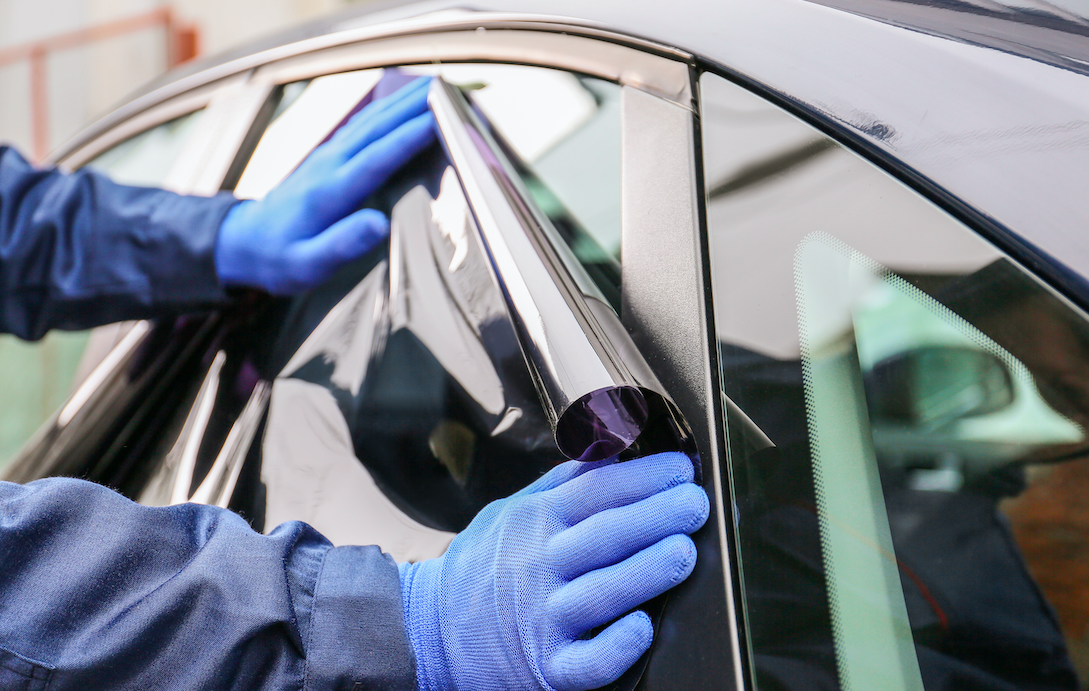Window Tinting for Homes: Improve Energy Efficiency and Privacy with Style
Window Tinting for Homes: Improve Energy Efficiency and Privacy with Style
Blog Article
Window Tinting Regulations: What You Required to Know Prior To Tinting Your Car
Understanding home window tinting regulations is essential for any type of automobile owner taking into consideration tinting their car. As you consider boosting your car's appearance and capability, it is essential to understand not only the legal effects but likewise the functional considerations that come with picking the appropriate color.
Value of Recognizing Color Regulations
Understanding window tinting regulations is essential for car owners to make sure conformity with state laws. These legislations dictate the permissible degrees of tint darkness and reflectivity, which can significantly differ from one jurisdiction to one more. Failing to comply with these policies can cause fines, compulsory removal of the tint, and prospective problems throughout car evaluations.
Additionally, recognizing these laws helps car proprietors make notified choices about their tinting choices. Various kinds of home window films give various advantages, such as UV defense, warmth being rejected, and glare reduction. Without understanding of the legal limits, vehicle owners risk selecting products that may inevitably lead to legal concerns.
Furthermore, recognition of tinting regulations cultivates a safer driving environment. window tinting. Exceedingly dark tints can impair visibility, enhancing the threat of crashes, especially at evening or in negative weather problems. Regulation enforcement firms also utilize these regulations to make certain road security, making compliance not simply an individual obligation yet a lawful responsibility
State-Specific Tint Regulations
Each state in the U.S. has developed its very own details policies regarding home window tinting, showing a varied selection of standards and demands. These regulations can vary substantially, affecting just how automobile proprietors approach installment and conformity. Some states enable darker tints on rear home windows while imposing strict limits on front-side home windows.
In addition, laws usually specify permitted color products and colors. Certain states prohibit reflective colors altogether, while others might enable them to a limited degree. Some territories mandate that vehicles with tinted windows display a sticker suggesting compliance with state legislations, providing a clear identification for legislation enforcement.
Enforcement of these legislations likewise varies; some states are more positive, carrying out random checks, while others rely upon complaints or noticeable violations to initiate enforcement. Car owners must be aware that failing to abide with state-specific color policies can cause penalties, necessary elimination of prohibited tints, or both.

Legal Tint Percentages
Establishing the legal tint portions is crucial for lorry owners seeking to abide by state policies. Each state has details regulations regulating just how much light has to pass through the home windows of a vehicle, which is shared as a percentage referred to as Visible Light Transmission (VLT) This percentage varies significantly across states and can rely on the sort of window-- front side, back side, and windshield.
For example, some states allow as little as 20% VLT on front side home windows, while others might allow as much as 50%. Windscreen tinting is frequently more limited, with lots of jurisdictions enabling only a narrow band of tint on top of the windshield. On the other hand, back home windows typically have a lot more forgiving regulations, with some states permitting darker colors.
It is essential for vehicle proprietors to familiarize themselves with their neighborhood laws to stay clear of possible legal problems. This consists of understanding exactly how VLT is gauged, as it click here to read can differ based upon the sort of home window movie utilized. Staying informed regarding these laws makes sure compliance and promotes safe driving problems for both the car owner and others when traveling.
Effects of Non-Compliance
Falling short to follow home window tinting legislations can bring about considerable repercussions for vehicle owners. The most immediate effect is the potential for traffic stops and citations from police. Police officers educated to recognize prohibited tint degrees might release penalties, which can differ by jurisdiction yet frequently range from modest to significant amounts. Repetitive violations might cause raised penalties, consisting of greater fines or added points on a driver's certificate.

Insurance provider might likewise penalize for non-compliance, as illegal alterations can be checked out as a violation of plan terms. If an occurrence takes place., this can influence coverage prices or lead to problems in insurance claims.
Inevitably, the consequences of non-compliance expand beyond instant financial penalties; they can affect a driver's insurance coverage rates, legal standing, and overall car value, emphasizing the importance of sticking to neighborhood home window tinting regulations.
Tips for Choosing Tinting Options
Comprehending the ramifications of non-compliance highlights the relevance of making educated selections when choosing window tinting choices. To start with, acquaint yourself with your state's particular laws relating to tint darkness and reflectivity. Each state has distinct policies that determine the permissible limits, so ensure you remain within these guidelines to stay clear of penalties.
Secondly, think about the kind of color material. Choices include dyed, metalized, and ceramic tints, each offering differing degrees of warmth denial, UV security, and resilience. As an example, ceramic tints give exceptional warm resistance without conflicting with digital tools, making them a prominent option.
Additionally, evaluate your key function for tinting. If you seek improved personal privacy, choose for darker colors; nevertheless, remember that this may affect exposure during the night. Alternatively, if glare decrease and UV security are your primary problems, lighter colors may be enough.
Last but not least, speak with a specialist installer that is knowledgeable concerning local guidelines and can recommend high-grade materials fit to your needs (window tinting). Taking these factors into account will ensure you make an educated choice, inevitably enhancing both your car's appearances and functionality
Verdict
To conclude, knowledge with home window tinting regulations is important prior to applying tint to a lorry. Each state imposes specific laws relating to visible light transmission percentages, specifically for front-side home windows and windshields. Non-compliance can result in significant charges, consisting of penalties and required removal of non-conforming tint. By comprehending legal demands and choosing ideal tint products, automobile proprietors can accomplish aesthetic enhancement while remaining certified with appropriate regulations. Adherence to these standards guarantees Check This Out both security and satisfaction.
Recognizing window tinting laws is essential for any car owner considering tinting their cars and truck.Understanding window tinting legislations is crucial for automobile owners to make certain compliance with state regulations. Some states allow darker colors Website on rear home windows while imposing rigorous limits on front-side home windows.
In contrast, back windows generally have a lot more tolerant regulations, with some states allowing darker tints. (window tinting)
In final thought, experience with home window tinting regulations is necessary prior to using color to an automobile.
Report this page